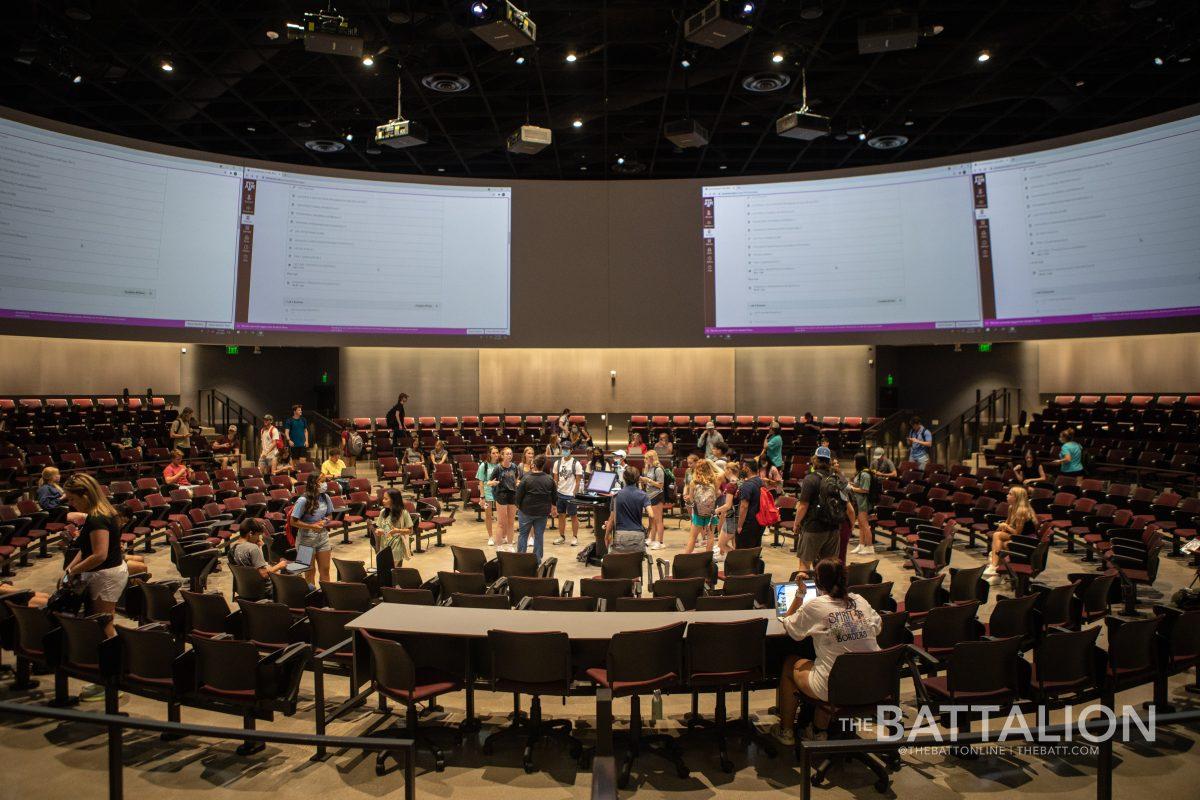Academic burnout is common among college students, and the return to in-person classes this semester has proven to be no different.
The fall 2021 semester is halfway completed, and Texas A&M students are beginning to feel the pressure. After a year of virtual learning, A&M students and professors had to adjust to in-person classes once again for upperclassmen. For many underclassmen students who began college during the COVID-19 pandemic, they’re doing it for the first time.
Mechanical engineering junior Mikash Kothari said he feels it has not been a smooth transition going back to in-person classes, but realizes he is not alone in this assessment.
“Initially, when I heard that we were going back to in-person classes, I felt a great amount of anxiety and a lot of stress. It’s been over a year since I’ve been able to sit in a classroom and actually talk to my peers and my professors,” Kothari said. “It’s been a great shift between sitting behind a laptop and doing classes through Zoom versus being in a classroom where everyone can see you.”
Additionally, Kothari said being an upperclassman has added to his stress because of its notorious reputation of being the hardest term for many engineers.
“I’m in several upper-level classes, and the material has become very abstract from that of lower-level classes,” Kothari said. “I feel like, while the homework load is less, I have to spend more time relearning that material.”
With juggling different classes, Kothari said academic burnout is something he has experienced in the past, and this semester is no different.
“Having a large amount of assignments to complete by specific deadlines makes me feel stressed out. I would say that I am constantly exhausted from not being able to sleep well,” Kothari said. “I feel like, with all the responsibilities and demands of my time and energy, I have to push my body to overdrive just to complete any task.”
Using coping methods to help relieve feelings of being overwhelmed is essential to performing well in school, Kothari said.
“I try to reflect on specific areas of my life during my day-to-day basis that are contributing to my stress and try to figure out what those triggers are,” Kothari said. “Often at times I think that I give myself too much stress in the sense that I try to balance everything in life when in reality some things are not in my control. I also like to make it my priority to maintain contact with my support system or connect with new people.”
Additionally, Kothari said he takes advantage of campus resources like Counseling & Psychological Services, or CAPS, which offer counseling to prioritize his mental health.
“I’ve been talking to a therapist, and I think that talking to someone really helps me get some explanation on my life,” Kothari said.
Kothari said he is using his family as motivation to finish the semester strongly as they have sacrificed so much for him to be here.
“I recently talked to my parents about their sacrifices. I’m sure they also felt overwhelmed moving to a new country and starting a new family,” Kothari said. “There are moments where I feel like giving up and I try to think back on what the end goal is.”
Biology sophomore Madeline Ojeda said she has also experienced academic burnout midway through the semester.
“Exams and assignments piled up right away,” Ojeda said. “I usually have three exams in one week, either back-to-back or two on the same day. It’s been hard trying to find enough time for everything.”
Additionally, Ojeda said frequent long drives back home to visit her family help alleviate her academic stress, especially during this semester, as she is spending most of her time in College Station.
“Home just brings a sense of comfort that nothing else can,” Ojeda said. “However, if I am still in College Station, I like to watch my comfort movie or [TV] show with lots of snacks and my roommates. Whatever it is, I always try to get school and other problems off my mind completely.”
Ojeda said her parents are her biggest motivation when times get tough because she knows they will support her no matter how difficult things get.
“I always try to remind myself that they sacrificed a lot to help get me to the place I am now, and I’d like to become successful enough to give them twice as much as they gave me,” Ojeda said. “I know that they’ll always stand by me, and I want to do everything I can to continue making them proud.”
For some professors, going back to in-person classes hasn’t been much of a struggle. Associate department head for Undergraduate Studies in the Department of Communication Nancy Street, who also teaches communication courses, said she has adjusted well and is excited about making it to the midway point.
“[I have been acclimating] very well. I’ve been teaching at A&M since 1989, so I have decades of in-person class experience,” Street said. “I feel great about [in-person classes], [it’s] good to be back. Also, good to know that there are just about five weeks left in the semester with Thanksgiving in there, too.”
Having taught during in-person semesters before, Street said she advises students to stay organized because she believes feeling in-control is key to not being overwhelmed.
“Keep in mind that students always feel overwhelmed at that time of the semester,” Street said. “I am big on making lists of all that needs to be accomplished between now and the end of the semester. Even if it is a lot, it helps to see exactly what needs to be completed. Once I see it all written out on one page, I feel much more in-control.”










